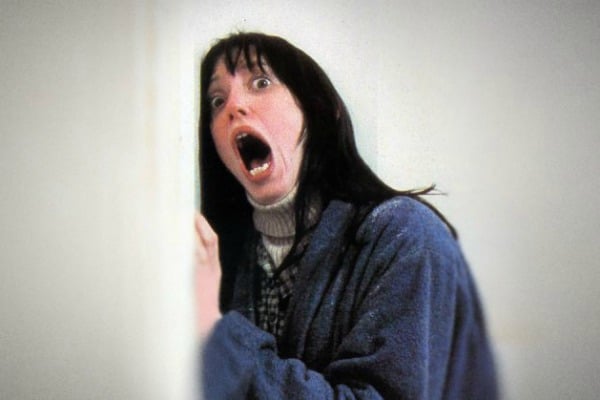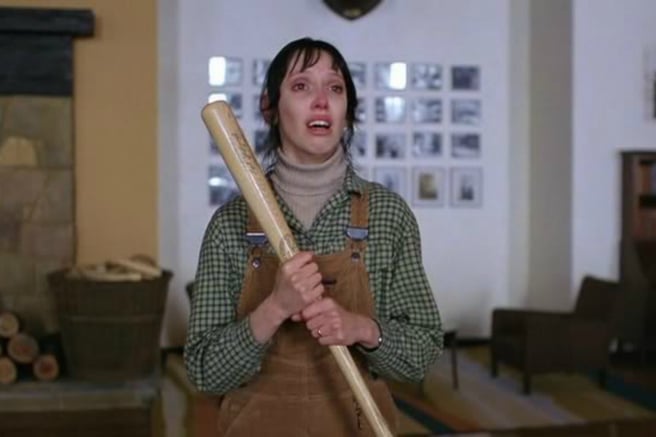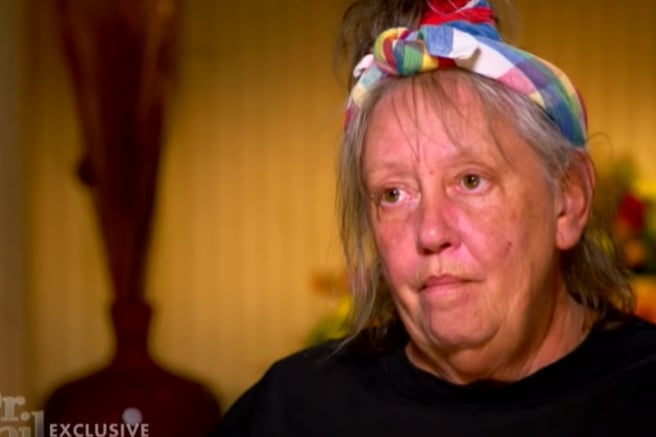
Four decades on from its release, The Shining is still regarded as one of the best psychological horror films of all time.
From the creepy Grady twins to the iconic axe scene, the 1980 film adaption of Stephen King’s novel was unlike other films of its time.
The Shining follows the story of Jack Torrance who becomes caretaker at the isolated Overlook Hotel in Colorado, alongside his wife, Wendy, and son, Danny, who experiences psychic premonitions. Jack later comes to discover the hotel's dark secrets and begins to lose his sanity before setting off to terrorise his family.
Watch the trailer for The Shining below. Post continues after video.
But behind the scenes, the filming process was just as harrowing as the movie.
Shelley Duvall, who played Wendy Torrance in the film, was subjected to harsh treatment by director Stanley Kubrick, who has a reputation for pushing his actors in order to get into character. Her mental health was so severely impacted that she even considered quitting the film.
"It’s the most difficult role I’ve ever had to play," Duval said in the book The Complete Kubrick.
"From May until October, I was really in and out of ill health because the stress of the role was so great. Stanley pushed me and prodded me further than I’ve ever been pushed before."


Top Comments